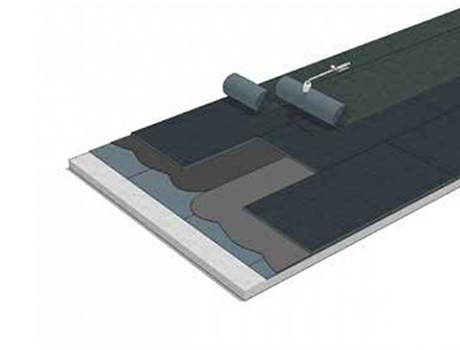How do you Prevent Pipe Corrosion is Really Important?
The plumbing system of a building must be maintained in a timely manner, principally because it is crucial in providing water resources to the inhabitants of the building. Pipe leaks could pose structural risks and can result in health issues particularly for water sources that are potable. To stay clear of this it's important to be aware of the best methods to avoid the corrosion of pipes. The plumbing system is complex however, it doesn't mean you cannot do anything to improve the design to stop future issues from happening.
To make sure that these problems don't occur in the pipes you have, easy procedures such as conducting routine maintenance and installing insulation and descaling pipes can ensure they last longer. Learn more about these practices here.
Descale The Pipes
As time passes the flow of fluid within your pipes may result in calcium and mineral build-up within the pipes wall using bitumen tape for roof waterproofing. This could result in less-than-ideal pressures in the water or could alter the chemical composition of your water. The process of decaling your pipes is one solution to this. This procedure involves the removal of these deposits to be sure they don't create clogs that cause disruption to the flow of pipes. Here's how:
Shut off the water supply to your building or home. It is also important to check that all water pumps or heaters are also switched off.
Determine which of your drains from your kitchen you need to wash. Fill a bucket with hot water to each drain.
Switch on the faucet to flush your toilet. This will flush out any water remaining inside the pipes.
Pour the drain cleaner in accordance with the product's instructions. It should rest for a couple of minutes or up to several hours according to the product you're using.
The boiling liquid goes into the drain, then switches on the water source once more. Turn on the faucet completely to make sure that all dissolving deposits are released.
Make Sure Pipes Are Galvanised
Sometimes, the best method to stop corrosion in your pipes is to implement preventive steps. One option is installing pipes covered with zinc similar to galvanised pipes or using pipe wrapping and coating. The protective coating has been applied specifically to ensure that the pipe is resistant to corrosion. Even if various compositions of fluids pass by the pipes on a regular basis the galvanised coating will not result in a chemical reaction when it comes into contact.
In addition to their corrosion-resistant characteristics and their corrosion-resistant properties, galvanised pipes are also more robust than steel pipes that are not coated. They are able to withstand pressures and temperatures more effectively which makes them more durable and lasting.
Add Insulation to The Pipes
A poorly-constructed pipe system can cause a variety of metals and alloys to be in contact with each other. Like water, this could result in a chemical reaction that could cause rusting or, in extreme instances, pitting corrosion, which can seriously damage pipes.
To stop this from happening it is necessary to add insulation to the pipes in order to reduce any chemical reactions that might occur. You'll also be needing the following materials: polyurethane foam sleeves, duct tape, knife/scissors/cutter/ caulk, and insulating wrap.
Install the insulating wrap or bitumen tape for roof waterproofing over the pipe's surface. Be sure it is fitted well and completely covers the surface of the pipe. Cut a hole in the sleeves of polyurethane and place the pipe inside them. Any gaps between pipes could be sealed with caulk.
Key Takeaway

Comments
Post a Comment